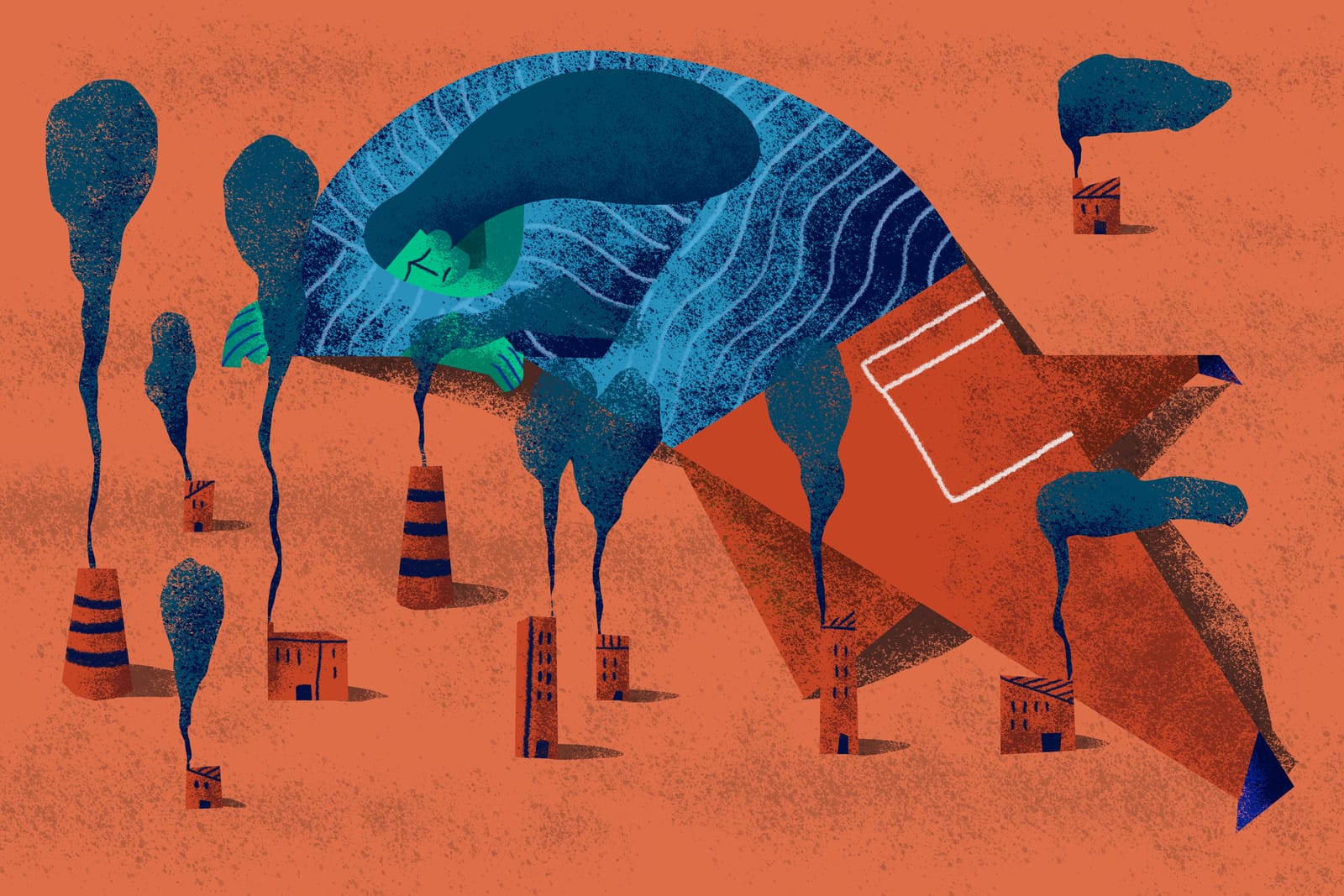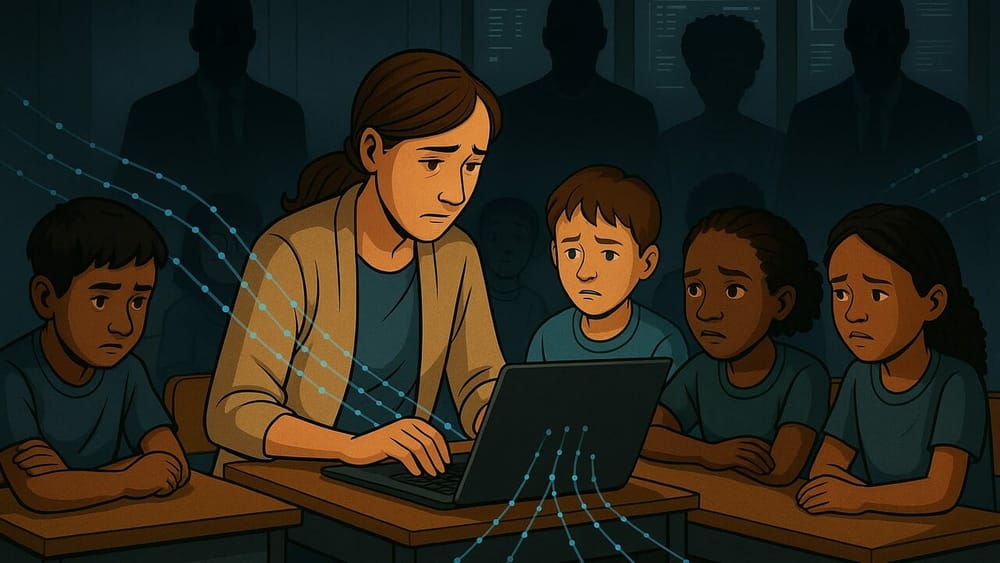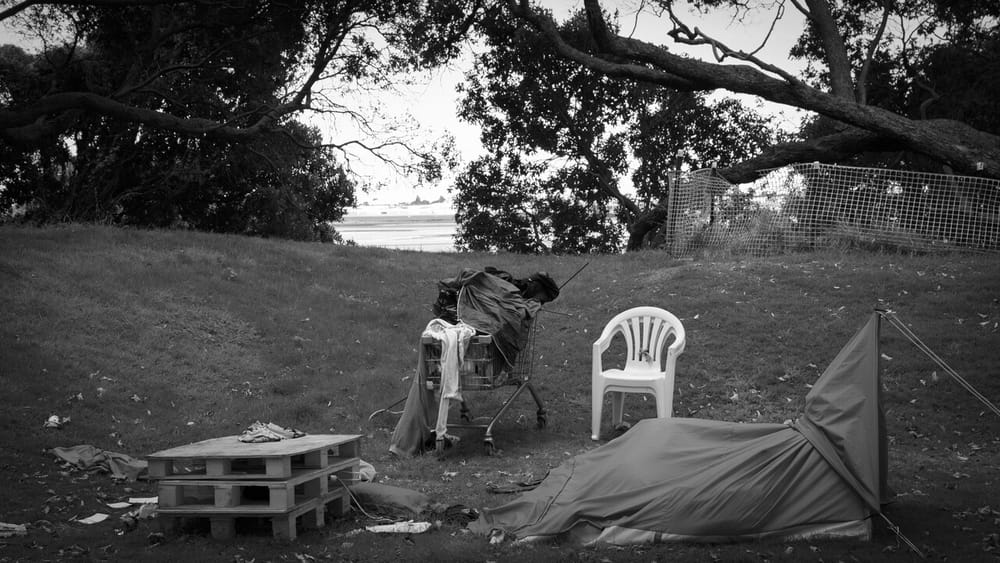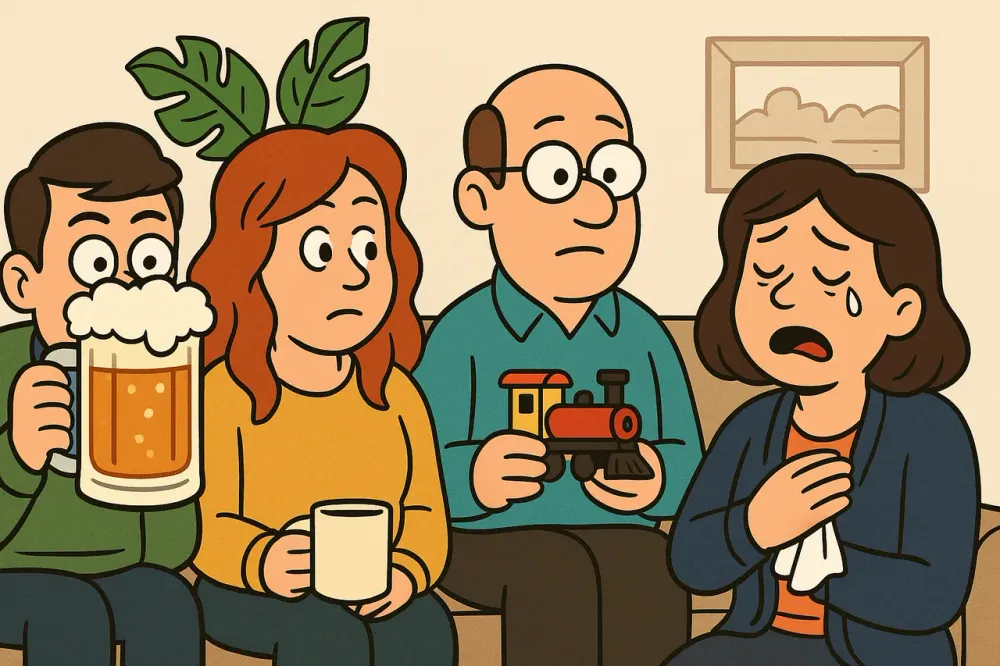It feels ironic to write about climate anxiety within the comforts of my home, surrounded by certain luxuries which have an expense on the environment. My laptop and phone are both charging, the clothes dryer is tumbling away, I am wearing clothes made in a factory in Bangladesh, and I am about to eat a banana that has travelled further than I have all year. As a millennial living with many modern-day privileges, to call myself a sustainability enthusiast feels contradictory. I know I am not alone in this particular form of angst, falling under the psychological umbrella of 'cognitive dissonance.' This theory suggests that humans are averse to their own mental inconsistencies, and serves to explain why our actions and behaviour can clash with our thoughts and values. On a small scale, it’s the uncomfortable feeling that arises when I knowingly waste food, or order an Uber when I could have walked. These conscious actions do not align with my belief that I am an environmentally mindful person. It’s also the justifications I make to myself when I fly somewhere or indulge in fast fashion. I ask myself, “What’s the alternative, refuse to participate in modern society and therefore sacrifice all conveniences?” Regardless of the care and concern I have for the environment, this doesn't feel realistic.
Call me an optimist but I firmly believe that no one wakes up in the morning striving for environmental degradation. Even the most corrupt of politicians or those at the top of the fossil fuel chain are dependent on a functioning planet. While it can be argued that the pursuit of exponential profit and power is at the root of the climate crisis (and yes, I will argue this), I also believe that this pursuit will ultimately be our lifeline. Mitigating climate change and the impending threats to humanity is ultimately a selfish tool—and being selfish is something humans have proved to master. Simply put, it is in capitalism's best interest to combat climate change.
Firstly, I want to say if you experience any level of climate discomfort and cognitive dissonance then that’s a fantastic first step. Apathy and indifference are the most dangerous weapons against our environment. However, feeling emotionally triggered by our own actions or those of others isn’t solely enough to stimulate real and fundamental change. Let us explore why that is.
The challenge of thinking ahead
As humans, we have adapted to respond to immediate threats and short-term concerns. This was particularly useful in our first 200,000 years of existing, when finding food, shelter and a mate required us to be vigilant to our present surroundings and circumstances. Being able to manage clear and present danger is why humans have survived as long as we have. The contemplation of time, and therefore the future of humanity, is a concept that has only become meaningful over the last few hundred years.
Only in the past few decades have we been asked to make sacrifices for the welfare of our future. In our minds, this feels like a one-way street, foregoing current comforts and enjoyment for the benefit of people we may never meet. Alongside this, we're asking corporations to fundamentally change their established technologies and systems that generate current profits; it’s a tough sell. Inarguably, the changes we make now will benefit our future selves—not just generations down the line— but that’s still not enough to concretize our empathy. Studies have shown we suffer from an emotional disconnect with our future selves, viewing ourselves 10 years from now as virtual strangers. This makes it difficult for us to comprehend the importance of these sacrifices for our own wellbeing, let alone fathoming the welfare of future generations for decades to come. In the words of the social philosopher Roman Krznaric, “The present is essentially colonizing the future.”
We are human-centred
We are social creatures, and our brain is specialised for centring humans—both ourselves and others. Harvard psychology professor Daniel Gilbert illustrates this by explaining our ability to see human faces in the clouds, but never clouds in people's faces. Furthermore, if you play people white noise for long enough, they will hear human voices in it; however, white noise will never be heard in human voices.
Humans provide our greatest source of reward and punishment. This explains why we feel more outraged by direct human actions, such as terrorist attacks, over indirect human impacts such as climate change; we are tuned into the signal of other human actions. If we can put a face to it, we feel connected. This is one of the key psychological hurdles of climate change—it is faceless. Sure, there are ‘villains’ in the climate crisis, but there is no single scapegoat.
The downside of our defence mechanisms
Psychologically, it can feel like the odds are against us. The human capacity to feel connected to one another as an integrated community will be further challenged in the upcoming years, exacerbated by the other monumental social and political challenges at play. This has the risk of creating a self-reinforcing loop, with the required large-scale cooperation being more difficult to establish and maintain, alongside the worsening climate situation.
The first hurdle of facing the climate truth is challenging the powerful defence mechanisms we use everyday, such as denial and justification. For example, it is easy to convince ourselves that our consumption levels do not need changing as it “will not make any difference in the grand scheme of things.” In order to avoid the stressful reality of the state of our biosphere, we can obscure this reality and engage in apathy to protect our minds from the discomfort. We are wired to avoid thinking and feeling things that are too painful, which can be a useful tool for functioning in daily life. However, we are at the stage of the climate crisis where this defence mechanism has become self-sabotage.
With all this being said, this is no reason to feel hopeless. The ability to understand our own minds is one of the most powerful tools that humanity has to create change. Once we recognise and understand an issue, the work can begin to mitigate it. The world is a fractured place, divided through racial, social, political, religious and economic lines; but, at the root of it all, we are inextricably linked to one another through our biosphere. Learning to feel like a global community will require extending our natural capacity to connect—to both ourselves and others. Here are some exercises and reflections you can undertake to extend these connections.
Break the silence in your daily life: This extends beyond social media—have meaningful conversations with family and friends about how you feel about the climate situation. It is essential these discussions become acceptable and accessible for empowerment to occur. Talking about a distressing topic such as climate change is best suited to environments where you feel socially supported. This will also help foster the sense of community that is fundamental to climate solutions.
Look around you: Reflect on how much of your wellbeing and survival depends on the work and efforts of others all over the world. Make a mental list of everything you use and come into contact with on a regular day—essentially everything that sustains our daily lives, from the food we eat to the home we live in, has been produced by people we don’t know. Feel gratitude for this, and work to ensure these people are empowered and respected in their workplaces.
Find commonalities: Look for what you do have in common with people, rather than what you don’t. Actively spend some time with people outside of your usual circles and consciously think “what can I learn from them?” and “what do we connect on?”
Humanise your future self: By actively learning to relate to our future selves, we are motivated to make decisions that have long-term benefits for our wellbeing. Imagination can be a tool for this—the ability to picture a vivid and realistic future can affect motivation. Studies by social psychologist, Hal Hershfield, suggested that people who viewed age-processed images of themselves expressed greater intentions to save for retirement. Spending time with older generations can remind us what we may be like decades from now, and motivate us towards the sort of world we want to exist in. Ask them questions about their experiences at your age and compare them to your own.
Practice delayed gratification: Set small, yet long-term goals. Minimise the perceived sacrifices felt in the present by reframing the goals. For example, putting aside $5 a day instead of $150 a month can feel more like a manageable target. Make small yet achievable changes to your lifestyle habits, such as eating one vegetarian dinner a week and building your way up to a diet less reliant on meat, buying seasonal and local products, using a compost bin, and looking into climate-change focused apps that can incentivize daily habits. Consciously reflect and question your actions, and verbalise these with loved ones. This creates a sense of autonomy and accountability for our behaviour.
Reimagine life stories: This includes grieving for the future we had. By undertaking this healing process, we open space for something new. Many of us—particularly those like myself who have an abundance of privilege including education, opportunity and access—have been told that the future is bright and holds endless possibilities. Realistically, this isn’t the case anymore. The climate crisis will continue to unravel the stability we depend on. However, what we can do is remind ourselves that our lives aren’t defined by now-unrealistic ideologies. In light of being faced with the climate crisis, I encourage you to rethink your expectations. Who are you? What is your purpose? What values can withstand the test of time and environmental challenges?
Zoom out, then zoom back in again: Thinking big picture can be overwhelming, and often leads us to feeling like the world is doomed. When I consider the future of humanity based on what I read in the news and on social media, it is hard not to feel jaded and world-weary. When you catch yourself feeling cynical about the state of the world, zoom into a smaller scale picture. Think about the people you love, how you are all within the same universe, existing in the same space and time. Think about the times you felt joy, success, excitement. Think about the time you heard your favourite song for the first time, tried your favourite food, fell in love. If you were to zoom out far enough, these moments in time appear meaningless: they aren’t going to become history, or solve the climate crisis. However, they are at the core of our humanity—the accumulation of all these little feelings and moments are the reason we get out of bed in the morning and continue living in the face of such monumental uncertainty. Allow yourself to feel encouraged and inspired by this. When we can truly feel that humanity, both ours and others, really does matter, this can be our biggest source for change.







